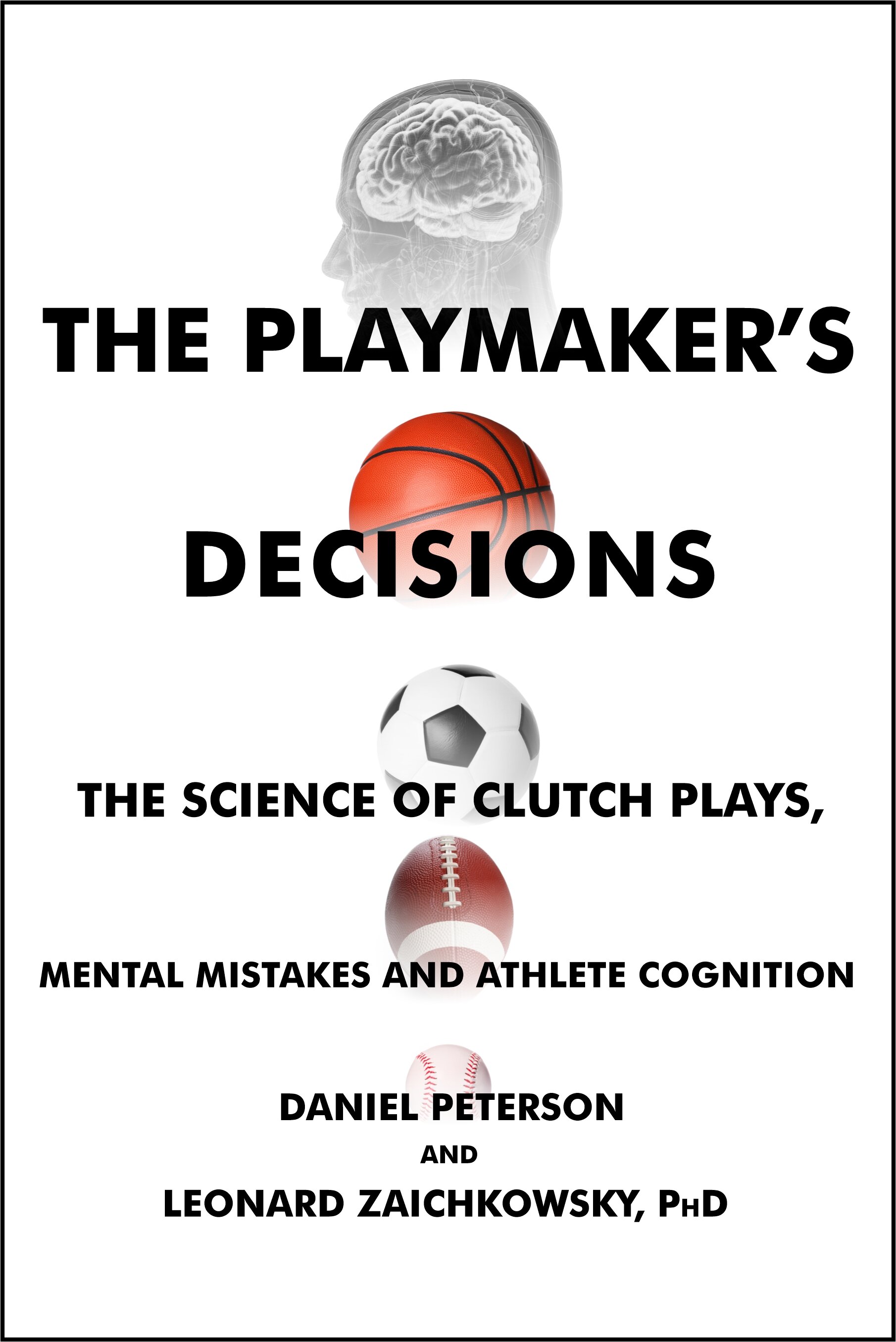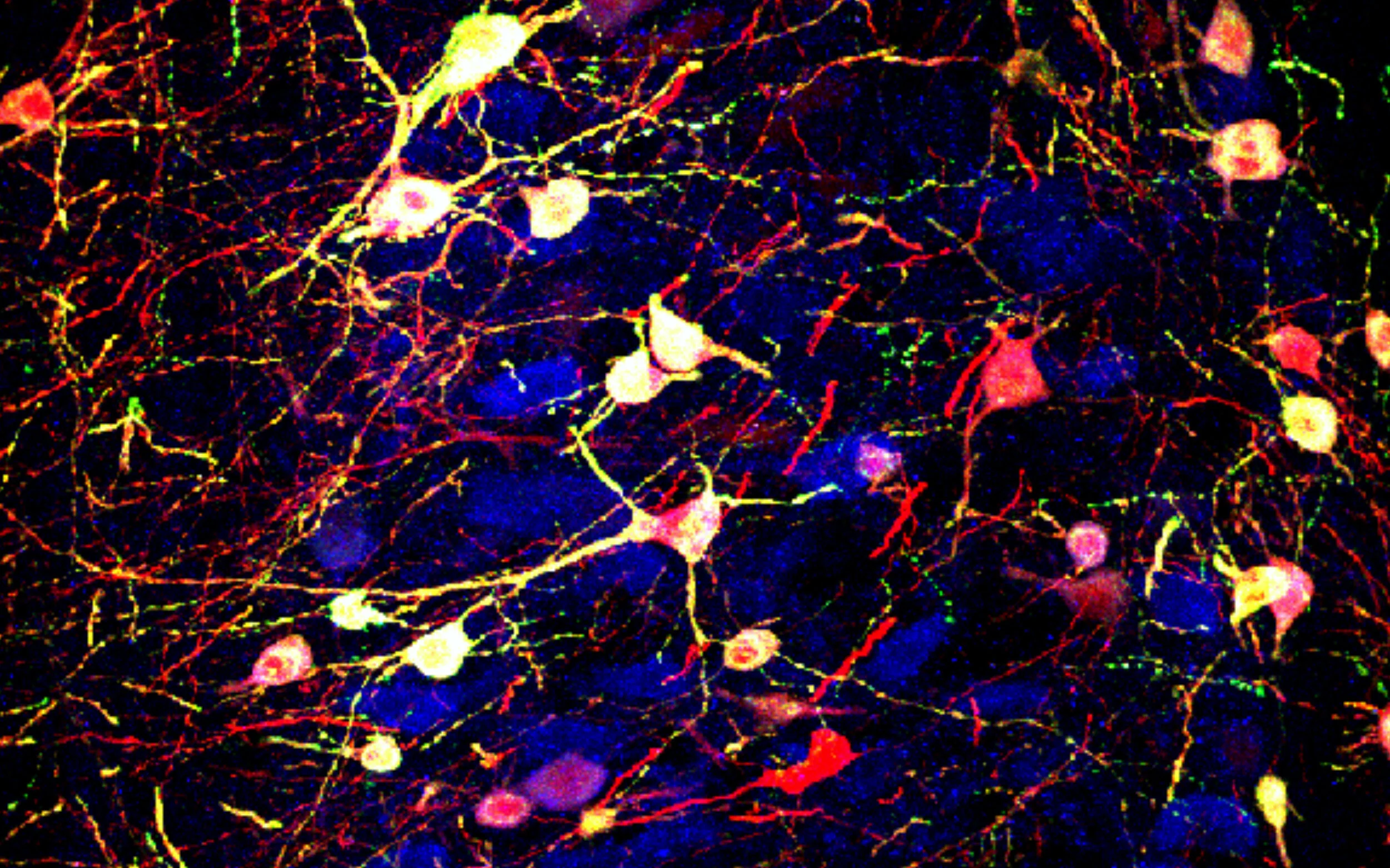Imagine Winning Gold In Beijing
/
Imagine winning a gold medal at the Beijing Olympics. No really, go ahead, close your eyes and visualize it. What did you see? Were you standing on the medal platform looking out at the crowd, waving and taking in the scene through your own eyes, or were you a spectator in the crowd watching yourself getting the medal put around your neck? This choice between "first-person" or "third-person" visualization actually makes a difference on our motivation to achieve a future goal.
Noelia A. Vasquez, at York University and Roger Buehler, at Wilfrid Laurier University wanted to see if there was a link between our visualization perspective and our motivation level to achieve the imagined goal. They asked 47 university students to imagine the successful completion of a performance task that was in their near future, whether it be a speech in a class or an upcoming athletic competition. They were also asked to assume that the task went extremely well. One group of students were asked to imagine this scene "through their own eyes" seeing the environment as they would actually experience it. The second group was told to use the third-person perspective, pretending they were "in the crowd" watching themselves as others would see them achieving this goal. Next, they were given a survey that asked each group how motivated they were to now go make this successful scene a reality.
As hypothesized, the group that saw the scene through their audience's eyes (third-person) ranked their motivation to now succeed significantly higher than those that imagined it through their own eye (first-person). The authors' explanation for this is the perceived additional importance attached to the task when we consider other peoples' opinion of us and our natural desire to increase our status in our peer group. Seeing this newly elevated social acceptance and approval of ourselves from the eyes of our peers motivates us even more to reach for our goals.
The road to achievements like an Olympic gold medal is a long one with many steps along the way. Over the years, as athletes maintain their training regimen, they can keep imagining the future goal, but they may need to also look back and recognize the improvements they have made over time. This "progress to date" assessment will also provide motivation to keep going once they realize the hard work is actually having the desired effect and moving them along the desired path. So, as they review their past to present progress, does the first or third person perspective make a difference there as well?
Researchers from Cornell, Yale and Ohio State, led by Thomas Gilovich, professor of psychology at Cornell, designed an experiment to find out. They recruited a group of university students who had described their high-school years as "socially awkward" to now recall those years and compare them with their social skill in college. The first group was asked to recall the past from a first-person perspective, just as their memories would provide them. The second group was asked to remember themselves through the perspective of their classmates (third-person). Next, each group was asked to assess the personal change they had accomplished since then.
As predicted, the group that had recalled their former selves in the third person reported greater progress and change towards a more social and accepted person in college than the group that remembered in the first-person. "We have found that perspective can influence your interpretation of past events. In a situation in which change is likely, we find that observing yourself as a third person -- looking at yourself from an outside observer's perspective -- can help accentuate the changes you've made more than using a first-person perspective," says Gilovich. "When participants recalled past awkwardness from a third-person perspective, they felt they had changed and were now more socially skilled," said Lisa K. Libby, an assistant professor of psychology at Ohio State University. "That led them to behave more sociably and appear more socially skilled to the research assistant."
So, whether looking forward or backward, seeing yourself through other's eyes seems to provide more motivation to not only continue the road to success, but to appreciate the progress you have made.
Then the actual day of competition arrives. It is one hour before you take your position on the starting blocks at the "Bird's Nest" stadium in Beijing or on the mat at the National Indoor Stadium for the gymnastics final. Should you be imagining the medal ceremony and listening to your country's national anthem at that point? In a recent Denver Post article, Peter Haberl, senior sports psychologist for the U.S. Olympic Committee says, "It takes a great deal of ability and skill to stay focused on the task at hand."
He distinguishes between an "outcome" goal, (receiving the medal) and "performance" (improving scores/times) and "process" (improving technique) goals. "The difference is that these types of goals are much more under the control of the athlete," explains Haberl. "The process goal, in particular, directs attention to the here and now, which allows the athlete to totally focus on the doing of the activity; this is key to performing well. This sounds simple but it really is quite difficult because the mind takes you to the past and the future all the time, particularly in the Olympic environment with its plethora of distractions and enticing rewards."
Mental imagery is a well-known tool for every athlete to make distant and difficult goals seem attainable. By seeing your future accomplishments through the eyes of others, you can attach more importance and reward to achieving them. Just imagine yourself in London in 2012!

Vasquez, N.A. (2007). Seeing Future Success: Does Imagery Perspective Influence Achievement Motivation?. Personality and Social Psychology Bulletin, 33(10), 1392-1405.
Libby, L.K., Eibach, R.P., Gilovich, T. (2005). Here's Looking at Me: The Effect of Memory Perspective on Assessments of Personal Change.. Journal of Personality and Social Psychology, 88(1), 50-62. DOI: 10.1037/0022-3514.88.1.50
Noelia A. Vasquez, at York University and Roger Buehler, at Wilfrid Laurier University wanted to see if there was a link between our visualization perspective and our motivation level to achieve the imagined goal. They asked 47 university students to imagine the successful completion of a performance task that was in their near future, whether it be a speech in a class or an upcoming athletic competition. They were also asked to assume that the task went extremely well. One group of students were asked to imagine this scene "through their own eyes" seeing the environment as they would actually experience it. The second group was told to use the third-person perspective, pretending they were "in the crowd" watching themselves as others would see them achieving this goal. Next, they were given a survey that asked each group how motivated they were to now go make this successful scene a reality.
As hypothesized, the group that saw the scene through their audience's eyes (third-person) ranked their motivation to now succeed significantly higher than those that imagined it through their own eye (first-person). The authors' explanation for this is the perceived additional importance attached to the task when we consider other peoples' opinion of us and our natural desire to increase our status in our peer group. Seeing this newly elevated social acceptance and approval of ourselves from the eyes of our peers motivates us even more to reach for our goals.
The road to achievements like an Olympic gold medal is a long one with many steps along the way. Over the years, as athletes maintain their training regimen, they can keep imagining the future goal, but they may need to also look back and recognize the improvements they have made over time. This "progress to date" assessment will also provide motivation to keep going once they realize the hard work is actually having the desired effect and moving them along the desired path. So, as they review their past to present progress, does the first or third person perspective make a difference there as well?
Researchers from Cornell, Yale and Ohio State, led by Thomas Gilovich, professor of psychology at Cornell, designed an experiment to find out. They recruited a group of university students who had described their high-school years as "socially awkward" to now recall those years and compare them with their social skill in college. The first group was asked to recall the past from a first-person perspective, just as their memories would provide them. The second group was asked to remember themselves through the perspective of their classmates (third-person). Next, each group was asked to assess the personal change they had accomplished since then.
As predicted, the group that had recalled their former selves in the third person reported greater progress and change towards a more social and accepted person in college than the group that remembered in the first-person. "We have found that perspective can influence your interpretation of past events. In a situation in which change is likely, we find that observing yourself as a third person -- looking at yourself from an outside observer's perspective -- can help accentuate the changes you've made more than using a first-person perspective," says Gilovich. "When participants recalled past awkwardness from a third-person perspective, they felt they had changed and were now more socially skilled," said Lisa K. Libby, an assistant professor of psychology at Ohio State University. "That led them to behave more sociably and appear more socially skilled to the research assistant."
So, whether looking forward or backward, seeing yourself through other's eyes seems to provide more motivation to not only continue the road to success, but to appreciate the progress you have made.
Then the actual day of competition arrives. It is one hour before you take your position on the starting blocks at the "Bird's Nest" stadium in Beijing or on the mat at the National Indoor Stadium for the gymnastics final. Should you be imagining the medal ceremony and listening to your country's national anthem at that point? In a recent Denver Post article, Peter Haberl, senior sports psychologist for the U.S. Olympic Committee says, "It takes a great deal of ability and skill to stay focused on the task at hand."
He distinguishes between an "outcome" goal, (receiving the medal) and "performance" (improving scores/times) and "process" (improving technique) goals. "The difference is that these types of goals are much more under the control of the athlete," explains Haberl. "The process goal, in particular, directs attention to the here and now, which allows the athlete to totally focus on the doing of the activity; this is key to performing well. This sounds simple but it really is quite difficult because the mind takes you to the past and the future all the time, particularly in the Olympic environment with its plethora of distractions and enticing rewards."
Mental imagery is a well-known tool for every athlete to make distant and difficult goals seem attainable. By seeing your future accomplishments through the eyes of others, you can attach more importance and reward to achieving them. Just imagine yourself in London in 2012!
Vasquez, N.A. (2007). Seeing Future Success: Does Imagery Perspective Influence Achievement Motivation?. Personality and Social Psychology Bulletin, 33(10), 1392-1405.
Libby, L.K., Eibach, R.P., Gilovich, T. (2005). Here's Looking at Me: The Effect of Memory Perspective on Assessments of Personal Change.. Journal of Personality and Social Psychology, 88(1), 50-62. DOI: 10.1037/0022-3514.88.1.50












